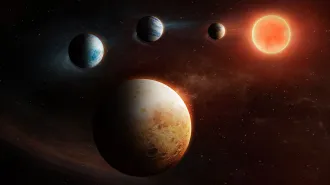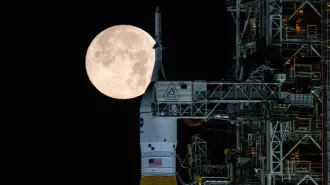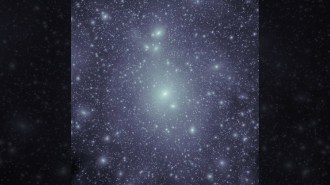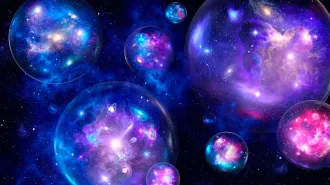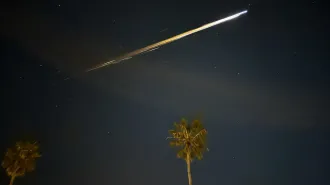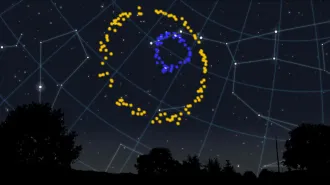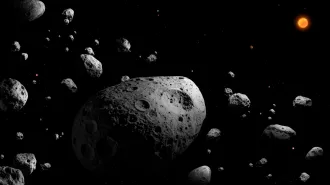- More than 2 years ago
Fingerprinting the light emanating from a cluster of stars in the constellation Virgo reveals that the glob harbors only a tiny black hole, astronomers report in the Aug. 20 Astrophysical Journal Letters.
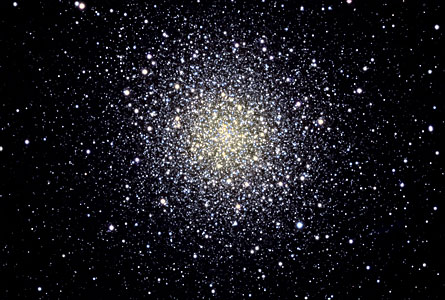
As cosmic garbage cans, black holes are regions of space so massive that their gravity prevents even light from escaping their pull. For several years, theorists have posited that the most likely place to find a medium-sized black hole — one weighing thousands of times more than the sun — would be at the center of a globular cluster. These clusters are gaggles of hundreds of thousands of stars and act as down-sized versions of galaxies.
The heftiest black holes are up to billions of times the mass of the sun and lie at the heart of almost all galaxies. The least massive black holes, which are about 10 times the mass of the sun, form when massive stars blow up in supernova explosions. Mid-sized black holes are thought to form when small black holes sink to the center of a globular cluster and acquire mass.
But, to date, no one has been able to find those mid-scale black holes.
To find the mass of one particular cluster’s black hole, Stephen Zepf of MichiganStateUniversity in East Lansing and an international team of astronomers studied the light emanating from the globular cluster RZ2109. This particular cluster, the team reports, contains a tiny black hole only 10 times the mass of the sun.
“That cluster is a fairly normal globular cluster,” says Zepf, lead author of the study. “So if intermediate black holes are common in globular clusters, then we have no understanding as to why there would not be in this one.”
Because RZ2109 hosts only a tiny black hole, the team concluded that similar small-sized black holes would be found in other clusters and that intermediate black holes are probably rare in globular clusters. If middle-sized black holes do exist, the cosmic garbage cans are probably lurking in satellite galaxies such as the ones that orbit the Milky Way. But right now, Zepf says, “it is just too hard to tell.”
